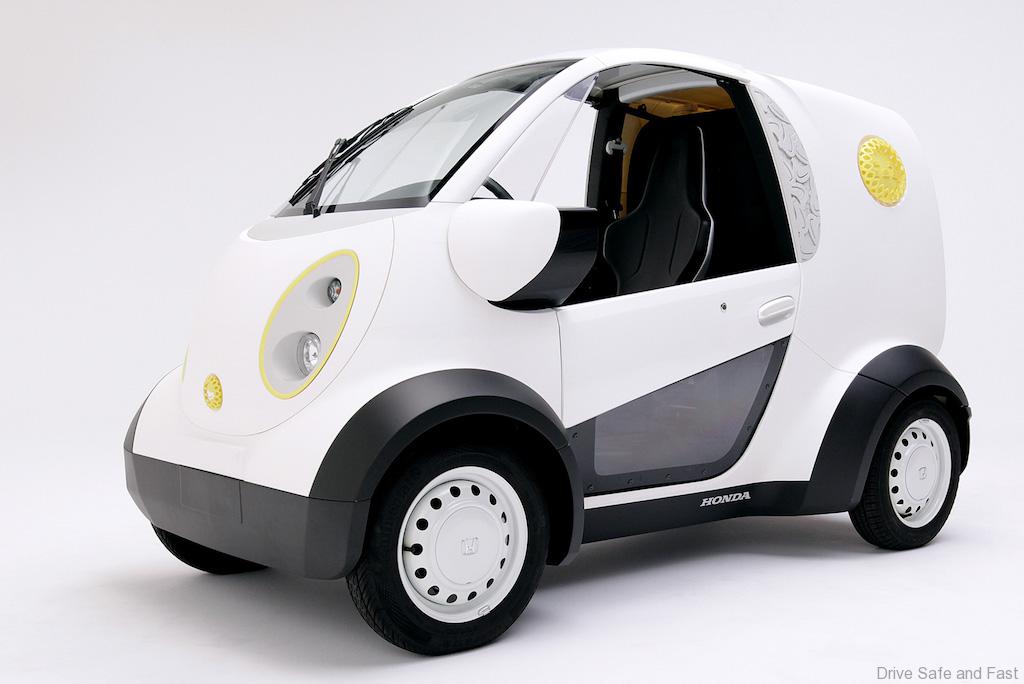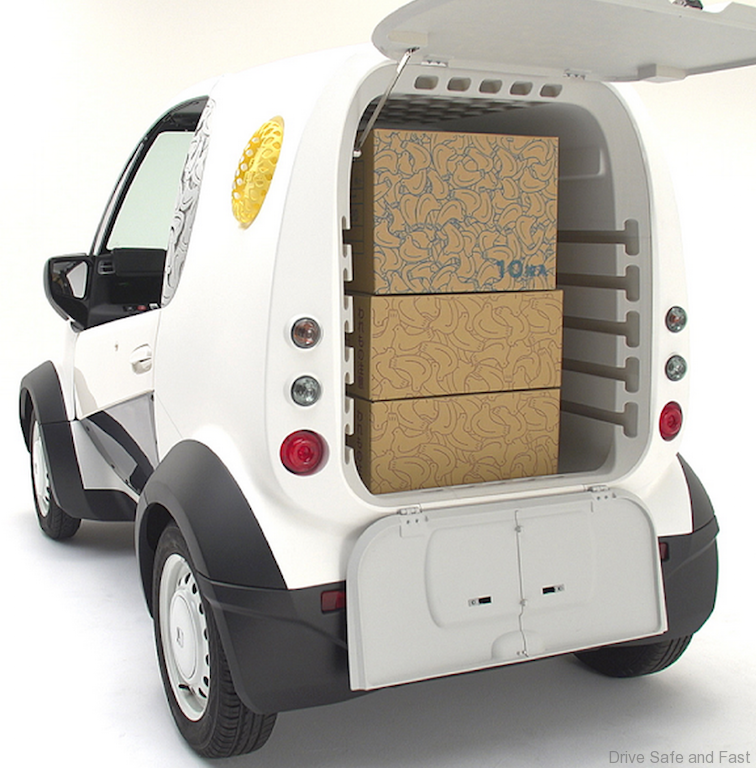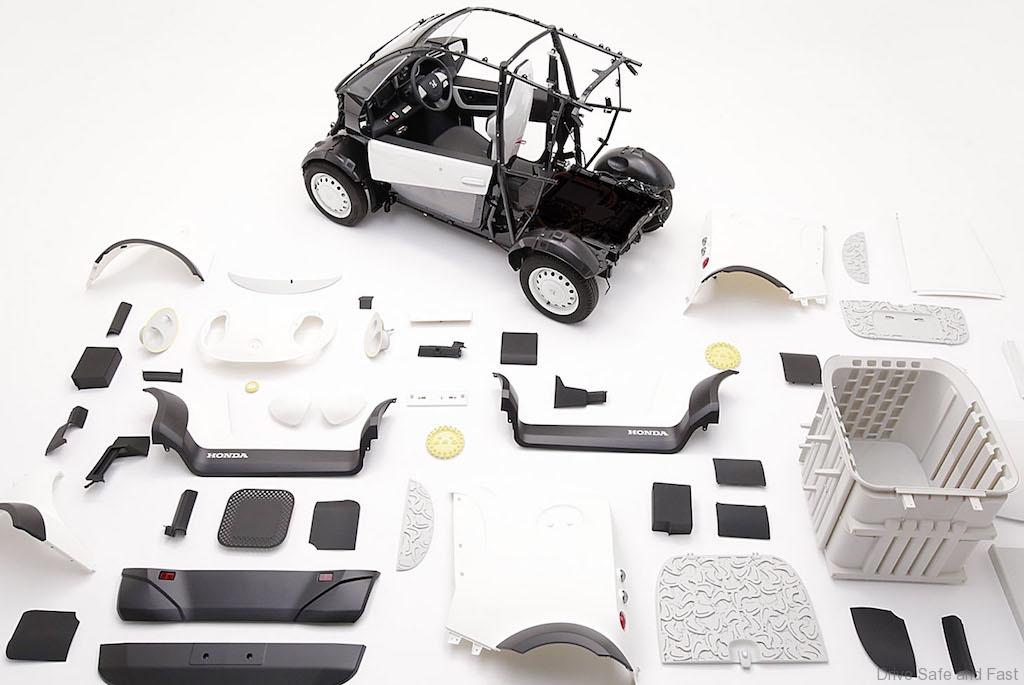Japanese vehicle manufacturer Honda has created the world’s first 3D-printed delivery van in conjunction with technology company Kabuku.tnb-honda-3d-print-1.
The Honda Micro Commuter is built on a tubular chassis, with all the body panels 3D-printed by Kabuku. It is built on the platform of the 2013 Honda MC-Beta concept car, a Renault Twizy-style urban commuting vehicle powered by a 6kW electric motor. The concept features a tubular body frame developed by Honda’s motorcycle division, and seats two people in a tandem layout.
Thanks to the 3D printing technology, the design and manufacturing process took just two months from concept to completion, according to Honda.
The Micro Commuter is fully electric and has room for a driver, passenger and a number of small boxes, with the first example being used to deliver cookies around offices in Tokyo.
Despite its basic design, it has a full instrument cluster and a touch-screen infotainment system. It can be driven up to 80 kilometres (50 miles) on a single charge – enough to cover most urabn delivery routes.
The all-electric drivetrain was developed by Honda specifically for the vehicle, which is designed for operation in densely populated urban areas, and could point towards a future EV system from the Japanese company.
Honda said that the Micro Commuter was 3D-printed specifically for Toshiyama, a Japanese company that makes a wide array of food items, snacks and beverages.
Toshiyama will use the Micro Commuter to deliver a dove-shaped cookie named Hato sable and will be used on public roads. However, neither Honda nor Kabuku have committed to putting it into regular production.





